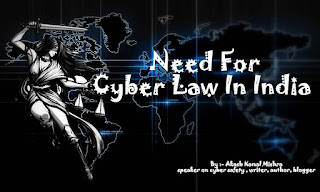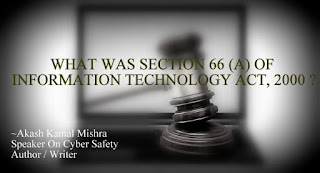THE VERY CONTROVERSIAL CYBER CRIME LAW PASSES BY PAKISTAN

The controversial law provides for up to seven years in prison for "recruiting, funding and planning of terrorism" online. Pakistan has adopted a much-criticised cyber security law that grants sweeping powers to regulators to block all private information they deemed illegal. The National Assembly approved the Prevention of Electronic Crimes Bill 2015. Government officials say internet restrictions under the new law are needed to ensure security against growing threats, such as terrorism. But this law has alarmed human rights and pro-democracy activists worried that its vague language could lead to curtailment of free speech and unfair prosecutions. "The overly broad language used in the bill ensures that innocent and ignorant Pakistani citizens, unaware of the ramifications of what the bill entails, can be ensnared and find themselves subject to very harsh penalties," By- Nighat Daad, founder of a group called the Digital Rights Foundation.




